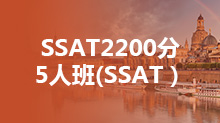SAT2物理词汇术语有哪些?
阅读量:
为了帮助大家高效备考SAT,新航道小编为大家带来SAT2物理词汇术语有哪些,希望对大家SAT备考有所帮助。下面跟着小编一起来看看吧。
The following list defines all of the bold-faced words you encountered as you read this book.
A
Absolute zero
The lowest theoretical temperature a material can have, where the molecules that make up the material have no kinetic energy. Absolute zero is reached at 0 K or –273o C.
Acceleration
A vector quantity defined as the rate of change of the velocity vector with time.
Activity
In radioactive substances, the number of nuclei that decay per second. Activity, A, will be larger in large samples of radioactive material, since there will be more nuclei.
Alpha decay
A form of radioactive decay where a heavy element emits an alpha particle and some energy, thus transforming into a lighter, more stable, element.
Alpha particle
A particle, which consists of two protons and two neutrons. It is identical to the nucleus of a helium atom and is ejected by heavy particles undergoing alpha decay.
Amplitude
In reference to oscillation, amplitude is the maximum displacement of the oscillator from its equilibrium position. Amplitude tells how far an oscillator is swinging back and forth. In periodic motion, amplitude is the maximum displacement in each cycle of a system in periodic motion. The precise definition of amplitude depends on the particular situation: in the case of a stretched string it would be measured in meters, whereas for sound waves it would be measured in units of pressure.
Angle of incidence
When a light ray strikes a surface, the angle of incidence is the angle between the incident ray and the normal.
Angle of reflection
The angle between a reflected ray and the normal.
Angle of refraction
The angle between a refracted ray and the line normal to the surface.







